Abstract
There was a period in the United States during the 1930s and 40s that was marked by a vibrant interest in how the fields of cultural anthropology and psychoanalysis could inform each other. By the 1990s the psychoanalytic landscape had changed considerably, and any interest in cultural psychoanalysis appeared to have all but vanished. Candidates entering analytic training during this period faced two pernicious biases that converged into a type of conventional wisdom with a deleterious impact on training: On the one hand there was the implicit belief that any interest by a candidate in cultural issues suggested a less serious interest in psychoanalysis; and on the other, there was the belief that psychoanalysis was simply irrelevant to the suffering of minoritized populations. In this presentation, after revisiting the decline of cultural psychoanalysis in the United States, the author will discuss the treatment of a patient presenting with a culture bound syndrome known as ataque de nervios. The treatment challenges biases within psychoanalysis and about psychoanalysis. The presentation will conclude by arguing for a new paradigm of cultural theorizing.
Learning Objectives
At the end of this presentation the participants will be able to:
1: Summarize the history of the early movement of cultural psychoanalysis in the United States.
2: Identify an important point of contention that alienated cultural psychoanalysis from cultural anthropology.
3: List two common features of the culture-bound syndrome known as ataque de nervios.
Biography
Chris Christian, Ph.D. is the Editor-in-Chief of the journal Psychoanalytic Psychology. He is a Training and Supervising Analyst, and past Dean, at the Institute for Psychoanalytic Training and Research (IPTAR). His most recent book, Psychoanalysis in the Barrios: Race, Class, and the Unconscious, with Patricia Gherovici, is the winner of the distinguished 2020 Gradiva Award, and winner of the American Board & Academy of Psychoanalysis Book Prize. He is co-editor of Psychoanalytic Perspectives on Conflict with Morris Eagle and David Wolitzky; and co-editor of The Second Century of Psychoanalysis: Evolving Perspectives on Therapeutic Action with Michael J. Diamond. He is an Assistant Clinical Professor, Yale School of Medicine, Department of Psychiatry; Faculty at the Western New England Psychoanalytic Society; Professor in the Contemporary Psychoanalytic Psychotherapy program, Ramon Llull University (Barcelona); andmember of the Los Angeles Institute and Society for Psychoanalytic Studies; and the International Psychoanalytical Association. His forthcoming book is titled: Psychoanalysis and the Corporeal: New Studies on the Psyche-Soma Connection, Somatization, and Body Dysmorphia to be published by Routledge.
References
Gherovici, P. and Christian, C. (Eds.) (2019). Psychoanalysis in the Barrios: Race, Class, and the Unconscious. London: Routledge.
Eagle, M. (2021). Toward a Unified Psychoanalytic Theory: Foundation in a Revised and Expanded Ego Psychology. London: Routledge.
Frie, R. (2022). Culture, Politics and Race in the Making of Interpersonal Psychoanalysis: Breaking Boundaries. London: Routledge.
